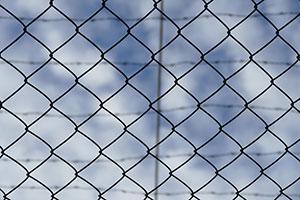The Museums Association Esmee Fairburn Collection Fund has awarded £120,000 to the National Justice Museum to introduce its unique 200-year-old HM Prison Service collection to a wider audience.
The funding supports a three-year project ‘Ingenuity, Creativity, Hope’ involving people in… more
By Paul Casson, Technical Field Manager, Rentokil Specialist Hygiene and David Cross, Head of Technical Training Academy, Rentokil Pest Control
While prisons exist to help rehabilitate people who have committed a crime or hold those awaiting trial, prisoners still have basic rights to a clean and hygienic habitation. Regular cleaning of prison areas is an important task, especially when you consider how many people live and work within prison environments. The UK’s current prison population is approximately 83,000, with around 35,000 employees keeping these facilities running as smoothly as possible.
While frequent cleaning forms part of the day-to-day management of these buildings, specialist deep cleaning is also required to prevent the spread of disease and ensure the area is fully disinfected for both inmates and staff.
Deep cleaning
The build-up of general grime and obvious dirt may be removed as part of a regular cleaning regime, but beneath the surface, unseen deposits and microscopic bacteria and pathogens can accumulate.
This is where employing industrial cleaning experts can complement daily cleaning routines, as they will have access to resources such as clinical grade disinfectants, high level cleaning equipment and specialist fogging as part of their armoury. ULV Fogging, for example, works by generating a mist of disinfectant, which settles on top of, underneath and on the sides of objects, furniture and hard-to-reach areas - ideal for ensuring every surface is covered.
We’d suggest carrying out a deep clean at least twice a year, focusing on kitchens, washrooms, refuse chutes and bin stores.
Ensuring hazardous waste is controlled
In some cases, prison areas can be the sceneof bio-hazardous incidents, such as “dirty protests”, which can involve detainees deliberately defecating or urinating in their cells, or even in communal spaces. Other bodily fluids, like blood and vomit, may also be present, which can harbour infectious diseases.
Due to the confined nature of prison cells, and the amount of footfall in communal areas such as the toilets and showers, the rapid, safe decontamination and disinfection of areas where waste that poses a risk is present, is extremely important to prevent the spread of disease. It is also critical to limit downtime during the cleaning process, to ensure a prison’s operational efficiency and safety isn’t affected.
Specialist prison cleaning services provide a rapid response to these hazardous incidents, guaranteeing that empty cells or communal areas are safely decontaminated and disinfected using specialist equipment and clothing, and ensuring that all harmful bodily fluids are removed and disposed of correctly.
Combatting rodent infestations in prisons
Prevention is definitely better than a cure when it comes to rodents, so a proactive pest management strategy is vital in keeping your prison pest-free. Prisons can provide safe harbourage for rodents and other pests as they can offer places to hide as well as sources of food and water. Maintaining a high level of cleanliness, ensuring that food isn’t left out overnight, and that all waste is sealed and disposed of properly, can make a huge difference to preventing a pest problem.
As mice can squeeze through gaps as small as the width of a biro pen, it can be tricky to keep them out so, sealing any obvious exterior holes with wire wool, caulk, metal kick plates or cement, can help to stop rodents from entering the premises.
Final words
Prisons face the same cleaning challenges as any large, densely-populated facility, but their unique characteristics make the job harder and even more crucial. By employing specialist cleaning and pest control technicians, facilities managers can ensure the space is clean, safe and operational for employees and inmates.



